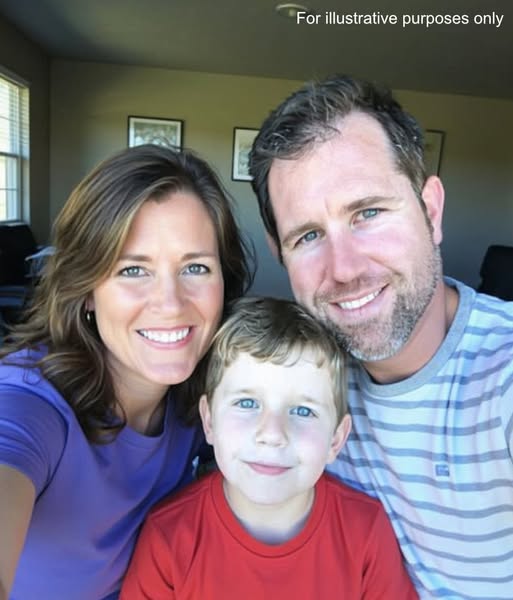When we adopted Eli, a quiet, withdrawn five-year-old boy, we thought the gentle rhythm of time and the steady presence of love would slowly mend the invisible scars he carried. We imagined bedtime stories, laughter at the park, and hugs at the kitchen table as small, daily stitches that would weave him into our family. He rarely spoke, and when he did, his words were measured, careful—as if he were testing the world before letting it in.
Eli clung to routines like armor. Mornings were the hardest. He would sit silently in the corner of the kitchen, staring at the floor, his small hands fidgeting with a toy car or a threadbare stuffed animal. We tried to coax him into conversation, asking about school or friends, but he would nod or shake his head, a shadow of a smile sometimes appearing, and then disappearing before we could call it joy.
We celebrated his sixth birthday with hope. A small cake, balloons, and a few carefully chosen gifts. We told him he could invite a friend if he wanted, but he quietly declined, retreating into his own world. We were patient. We told ourselves that love didn’t rush, that healing often came in invisible increments, measured in moments rather than milestones.
And then, amid the laughter of a few family friends and the smell of frosting, Eli surprised us. He sat upright, staring at the ceiling for a long moment before turning to us with eyes we had never seen fully alive before. Five words escaped his lips, and the room went silent: “My parents are alive.” The words hit us like a lightning strike, splitting the ground we thought we had built together.
The days that followed were a storm. We questioned ourselves. Did we fail to see something? Did he carry memories we had overlooked? He refused to elaborate at first, retreating into a silence even deeper than before, his eyes clouded with confusion and something we couldn’t yet name: fear, perhaps, or longing.
We decided to approach the situation with care. We sat on the living room floor, knees bent, hands clasped, letting Eli take the lead. Slowly, he began to tell fragments of his story—memories of a mother singing in the kitchen, of a father’s voice reading bedtime stories, of a life that existed before us. We listened, astonished and heartbroken, realizing that his pain ran deeper than we had imagined.
Eli’s story revealed the truth of abandonment in a way we had only read about in books. He had been separated from his birth parents under circumstances we didn’t yet fully understand, placed in foster care, and eventually matched with our family. We had loved him with all our hearts, but love alone could not erase the void of absence, the unanswered questions, the yearning for those first faces, that first home.
We began to explore options carefully. With the guidance of social workers, psychologists, and legal advisors, we sought to reconnect Eli with the fragments of his early life. We didn’t want to erase his past, nor did we want to replace it, but to honor it—to let him know that both his worlds could exist without conflict, that he could love us while remembering them.
The process was gradual. Phone calls, letters, visits arranged by child services. With each step, Eli’s eyes brightened a little, and the tension around him softened. He began to speak more freely at home, sometimes whispering memories in our ears, sometimes laughing at stories we hadn’t known. It was messy, fragile, and beautiful, the way healing often is.
By his seventh birthday, we had a new understanding of family. Eli blew out the candles on his cake and whispered a quiet, unsteady “thank you” to us, not just for the party, but for holding space for both his past and his present. And in that moment, we realized that love isn’t about erasing pain—it’s about bearing it together, sharing the weight, and celebrating the courage it takes to keep living, even when the heart carries pieces of two worlds.
